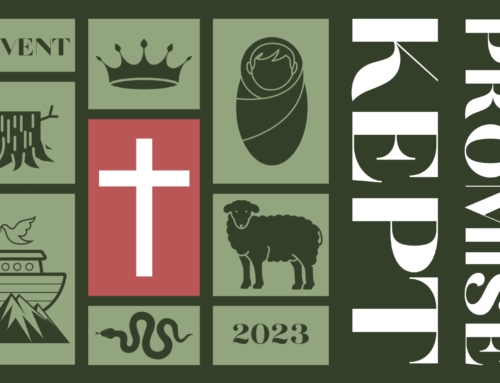Hopefully you all are reading the bible regularly in your homes. As believers in Jesus, we should all love him and his word. As the psalmist says, it should be our delight. We should love reading his word and being transformed by it. Sometimes this may be easier said than done. Much of what is in the bible is very straightforward and easy to understand. However, there are some passages that are more difficult. We should be reading prayerfully and relying on the Holy Spirit to help us understand God’s word, and some passages require more study than others if we are going to understand exactly what is being communicated.
I want to offer 6 questions (Who? What? When? Where? Why? and How?) that we can ask when reading the bible. Answering these questions will help us to come to a better understanding of those more difficult passages, but they will also help us even to understand the easier passages more fully and more consistently.
In order to keep these blog posts short enough to be read and digested in a timely manner, we will consider these questions over a few posts. This is the second. The others can be accessed below.
3. When?
A third important question to ask is “when.” Depending on the type of passage you are reading (history and narrative or prophecies and letters) this question may have two different answers. First you want to ask when was what you are reading written. You do not have to become a historian to read the bible, but knowing a little bit about the background of the passage can help you to understand it better. In many bibles, each book has a short introduction at the beginning that helps us to get a little background. For example, it is helpful to know that Paul wrote 1 Timothy after he had planted a church in Ephesus and left Timothy there to help it get established. It can be helpful to know that Paul wrote 2 Timothy while he was imprisoned and that it is the last book that he wrote. It can be helpful to know that Micah wrote his prophecy after the Assyrians conquered the northern division of the kingdom (Israel) but before the Babylonians conquered the southern division of the kingdom (Judah). It can be helpful to know that Moses wrote Genesis a few hundred years after the life of Abraham and looked back on those events.
There is a second aspect of this question that is even more important when did the events in the book take place (or at least in what order). When we read the prophets or the New Testament letters, the events taking place are happening at the same time or close to the same time that they are being written. However, in history or narrative books (books that tell a (true) story), often the writer is writing about them after they have taken place—sometimes many years after. It is important to know if the events in the passage you are reading happened before the fall or after, before the flood or after, before Israel was established as a nation or after, before the priesthood was established or after, before Jesus was crucified and ascended to heaven or after (or between those two events), before God made a specific promise or after, or etc. For example, when reading the passage where we are told about Abraham tasing Isaac to be sacrificed, it is helpful to remember that God had already promised Abraham and Sarah that he would create a great nation through Isaac and his descendants.
4. Where?
The next question is very similar to the last. When we ask where a passage int he bible is, we are talking about where in the story of the Bible.
The bible is made up of 66 different books written by several different people over a time span of several hundred years. However, those 66 individual books join together to tell one large story, and the events of each of them fit within the storyline of the whole bible. When reading any specific passage in the bible, it is important to note how it fits within the overall storyline of the bible.
This shouldn’t be more complicated than it has to be. The storyline of the bible can be summarized in four parts:
1. Creation
Creation is the first stage in the bible’s story. The bible says that God created everything that exists other than him. It says that God did not create the world out of anything. He created the world from nothing. It also says that the creation he made was good—all aspects of it. Nothing evil in the world is God’s fault or because of how he made it.
2. Fall
The second stage in the bible’s story is the fall—when Adam and Eve fell into sin and took the rest of creation (including all other people) with them. This is the explanation for how evil and bad things entered the good creation that God made.
3. Redemption
The third stage in the story of God’s interaction with his creation is the longest. This is the majority of the bible, and this stage itself has several sub-stages. We read about creation in the first two chapters of Genesis. Adam and Eve fall into sin and carry the creation along with them early in Genesis 3. In Genesis 3:15, God made a promise to undo what Adam and Eve had done. We can understand the entire rest of the bible (starting with God driving Adam and Eve out of the Garden of Eden and ending with Jesus’ return at the end of Revelation) as the story or history of how God has kept that promise!
4. Consummation/Completion
This final stage int he story occurs when Jesus returns and completes the plan of salvation/redemption that God has been working toward since before the creation of the world.
When reading a passage from the bible, it is vital to know which stage of the bible’s story it is a part of —and where in that stage. For example, we find the ten commandments listed in Exodus 20 and Deuteronomy 5. Many people reading one of those passages come to the conclusion that if they just obey those commandments perfectly then God will be pleased with them and they will be saved. However, if we keep in mind where those passages are located within the progress of God’s work of salvation/redemption, then we realize that the plan all along was to provide salvation by grace through faith in the Lord Jesus. Read in the proper context, we understand the 10 commandments to be a description of God’s character, a standard for people to measure themselves by, and proof that we are not able to measure up to God’s standard on our one. We need someone to do it for us!
Finally, this discussion could be discouraging to some of us—especially newer believers—who may not have a good grasp on the history of biblical events. I don’t want it to be and hope that it will not be. Each of us are learning about God and about how he has worked through history all the time. I know the history of the biblical events now better than I did several years ago. Lord willing, by continuing to read the Bible and the Holy Spirit continuing to work through it, I trust that I will know it and understand the significance of it even more and more as the years go on. If you are a new believer or if you have not read the bible much, you may not know much about the history in the bible. You may not even know who Abraham is.
If this is the case for you, let me encourage you with a few of things:
- Firstly, keep reading. The more you read, and re-read, the more you will understand and remember.
- Secondly, read different parts of the bible. Don’t discouraged by not understanding every thing or how it all fits together. That will come in time. A bible reading plan can be helpful for this, but if you use one and get behind don’t be too discouraged. Maybe take a yearly bible reading plan and read through it in 2 years or 3 instead of 1.
- Thirdly, make it a priority to be reading and studying the bible with the church as often as possible. You should try to be present for the preaching of the word as often as you can. When we preach the bible, we not only try to explain and apply a particular passage of the bible, we also try to put that specific passage being preached in the context of the whole bible and explain how it fits into the overall story of the bible. Moreover, the more you are in bible studies and Sunday School classes the faster you will pick on these things.
- Fourthly, a good children’s bible can help with this as well. There are a lot of children’s bible published that are just a collection of bible stories. Those can be helpful to get to know what is in the bible. But, really good children’s bibles not only introduce the stories of the bible, they explain the one overall story of the whole bible and how those individual stories fit into it in a simple understandable way. Sometimes adults may feel self-conscious or too prideful to read a book written for children. Don’t. Understanding the bible is too important for that. I have a couple of really good children’s bibles that I look at and use from time to time for this purpose.
- Finally, If this is a need you have or something you are interested in, please let one of your pastors know. I have a few books that I could recommend to you or let you borrow. Your other pastors can as well.




